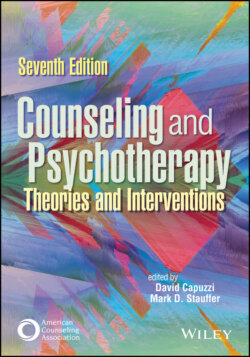Читать книгу Counseling and Psychotherapy - Группа авторов - Страница 145
Transactional Analysis
ОглавлениеTransactional analysis suggests that emotional conflicts do not arise from the superego mediating the id and ego but instead emerge from unhealthy mutual interactions among the three. A therapist gains significant understanding of a problem by observing verbal and nonverbal communications between two or more people, which helps the therapist and client identify the source of the crossed, or unhealthy, response style. The three styles of responding are the parent, the child, and the adult. The first ego state, the parent, holds the memory of rules and norms absorbed by exposure to external events in childhood. The second ego state, the child, holds the emotional memory of the client, including emotional responses to interactions with caregivers. The final ego state, the adult, assimilates the thoughts, feelings, and behavioral responses learned from childhood differentiation of rules and norms versus internal motivations. The therapist can use this triadic ego model to help clients understand their communication styles; for example, they might have learned a dominant ego state as a reactive response to child-rearing practices in the first 5 years of life, and their identified problems emerged because of inefficient reinforcement of healthy human interaction patterns (Berne, 1961).
